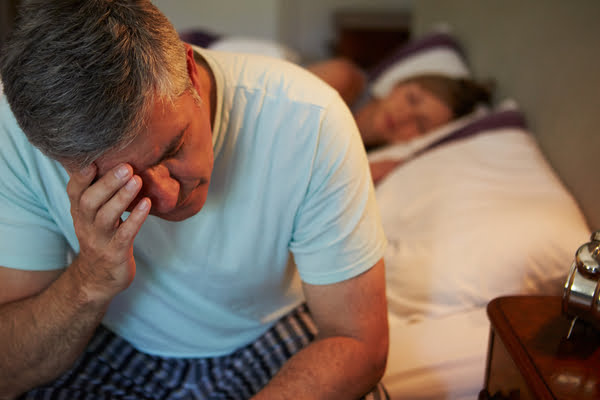What Is Insomnia?
- Updated on: Dec 14, 2024
- 3 min Read
- Published on Apr 18, 2021

Definition of Insomnia
The amount of sleep a person requires varies. Most people need between 7 and 8 hours of sleep a night to feel energized and refreshed. If you aren’t able to sleep, you may be worried if you have insomnia. Insomnia is a complex but a common sleep disorder. The condition tends to increase as people get older.
If you have insomnia, you may have problem falling asleep, staying asleep, or both. As a result, you may either get too little sleep or have poor quality sleep. You may not feel energized and refreshed when you wake up. Occasional episodes of insomnia may come and go without causing serious problems. But it can last for months or even years for some people.
What happens if you have Insomnia?
If you have insomnia, you may
- lie awake for a long time
- have problem falling asleep
- wake up too early in the morning
- wake up often during the night and have trouble going back to sleep
- find it hard to nap during the day, even if you are feeling tired
- feel as you haven’t slept at all
- have sleep that’s not refreshing
Due to poor quality of sleep, you do not feel refreshed throughout the day. It affects your entire daytime function. You may feel very sleepy and have lack energy. You may not think clearly or may not remain focused. The effects of having no sleep in the night may make you irritated and depressed.
Read about symptoms of insomnia.
How much sleep do you need daily?
There are no official guidelines about how much sleep you should get each night. This varies based on requirements of each individual. Further, it varies based on age.
Generally, a normal adult person requires seven to nine hours a night of sound and undisturbed sleep. Children and babies may sleep for much longer than this – about 10-13 hours. Older adults may sleep less – about 6 hours.
It is rather more important that you get a good-quality undisturbed sleep, and that you feel refreshed after the sleep.
If you constantly feel tired, this means you are not getting good quality sleep.
What are the different types of insomnia?
There are mainly two kinds of insomnia:
Primary insomnia
Primary insomnia occurs when a person has sleep problems that are not directly associated with any other health condition.
Secondary (co-morbid) insomnia
Secondary insomnia occurs when a person has sleep disorders because of something else, such as a health condition or food or any substance they may be taking. These conditions or substances may include asthma, arthritis, depression, cancer, pain, any medicine they may be taking, or due to alcohol.
Acute Insomnia VS Chronic Insomnia
Insomnia can be classified based on how long it remains and how often it occurs. Acute insomnia is short-termed. It can come and go, with periods of time when a person has no sleep problems. Acute insomnia can last from one night to a few weeks. Chronic insomnia occurs when a person has insomnia for at least three nights a week for one month or longer.
What are the causes of insomnia?
It’s not exactly known what causes insomnia, but researchers associate it with a few conditions:
- Stress
- Anxiety
- Poor sleeping conditions
- Lifestyle
- Health conditions
- Certain medicines
- Alcohol consumption
Read more about causes and triggers of insomnia.
How can you manage insomnia?
There are a number of ways you can manage your sleep. Some of them are:
- Try to get sleep at the same time at each night
- Avoid long use of phones
- Avoid alcohol or caffeine or nicotine in the night
- Do regular exercises
- Do not nap during daytime
- Do not watch TV late in the night
- If you do not get sleep easily, do not move away and engage in something that is not stimulating for sleep
Read more about management and treatment of insomnia.











